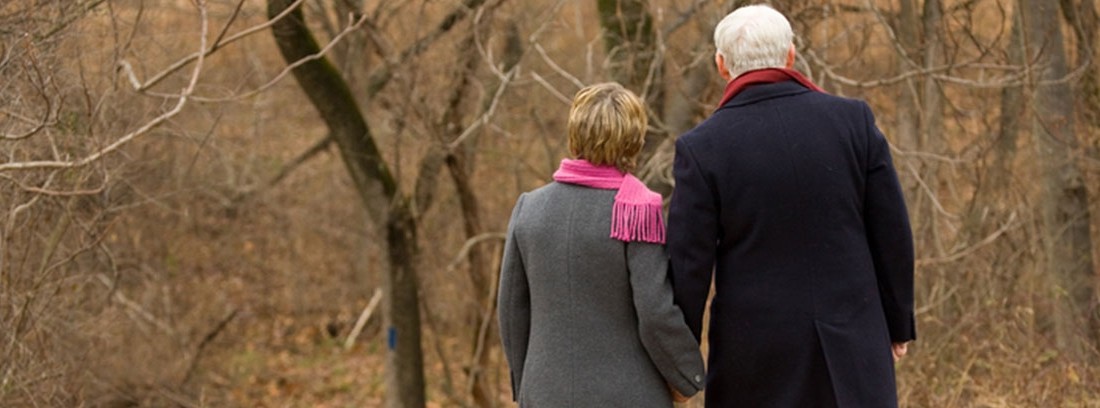Care of the elderly with dementia. Incontinence and ambulation
 WHAT YOU NEED TO KNOW ...
WHAT YOU NEED TO KNOW ...
- You don't have to wait for the person to ask to go to the bathroom, but rather anticipate.
- It's important to be understanding when accidents happen, stay calm, and reassure the person.
- It is advisable for the person to carry some type of identification or wear a medical bracelet or medal.
Incontinence
Life can be distressing for the person and difficult for the caregiver. Sometimes it is due to a physical illness, so it is important to discuss this with your doctor.
It's also about ...
- Have a routine for taking the person to the bathroom and stick to that routine as rigorously as possible. For example, taking the person to the bathroom about every 3 hours during the day. Do not wait for the person to ask for it, as they may not realize it in time.
- Be on the lookout for signs that the person may need to use the bathroom, such as fidgeting or pulling on their clothes (often the problem is they don't know what to do or how to call). Act quickly.
- Being understanding when accidents happen, it is not the fault of the patient, nor is it a lack of hygiene or sloppiness. Remain calm and reassure the person if they are distressed. Try to notice when these accidents happen to help plan ways to avoid them.
- If we are going to date the person, plan ahead. Find out where the toilets are located and make sure the person wears simple, easy-to-remove clothing (for example, pants with elastic).
- Bring an extra set of clothing in case of an accident. There are also absorbents or diapers of different capacities. In any case, it is important in these cases to take care of the skin, extreme hygiene and hydration of the same.
Uncontrolled wandering
Some people with diabetes tend to wander out of their homes or away from those who care for them. Knowing what to do to limit that behavior can protect the person and prevent them from getting lost.
- Make sure the person is wearing some form of identification or wearing a medical bracelet or medal.
- Notify neighbors and local authorities in advance that the person has a tendency to wander.
- Keep a recent photograph or video of the person with Alzheimer's to help law enforcement in case the person is lost.
- Keep doors locked. Consider the option of placing a lock that locks on the inside, or an additional lock that is positioned higher or lower on the door. If the person can open the lock because it is familiar, change the lock.
- Install an “announcement system” (bells, chimes, etc.) that sounds when the door is opened.
- To reduce the risk that the person "gets lost" at home, it is useful to put up posters with drawings that represent the room (a bathtub or toilet in the bathroom door, a bed in the bedroom door, etc.).
Despite all that has been said, one of the best advice that can be given to the caregiver of a person with dementia is to take care of yourself. Maintaining your own space and time are vital to be able to maintain and renew the energy necessary to care for a dependent loved one.
(Updated at Apr 13 / 2024)